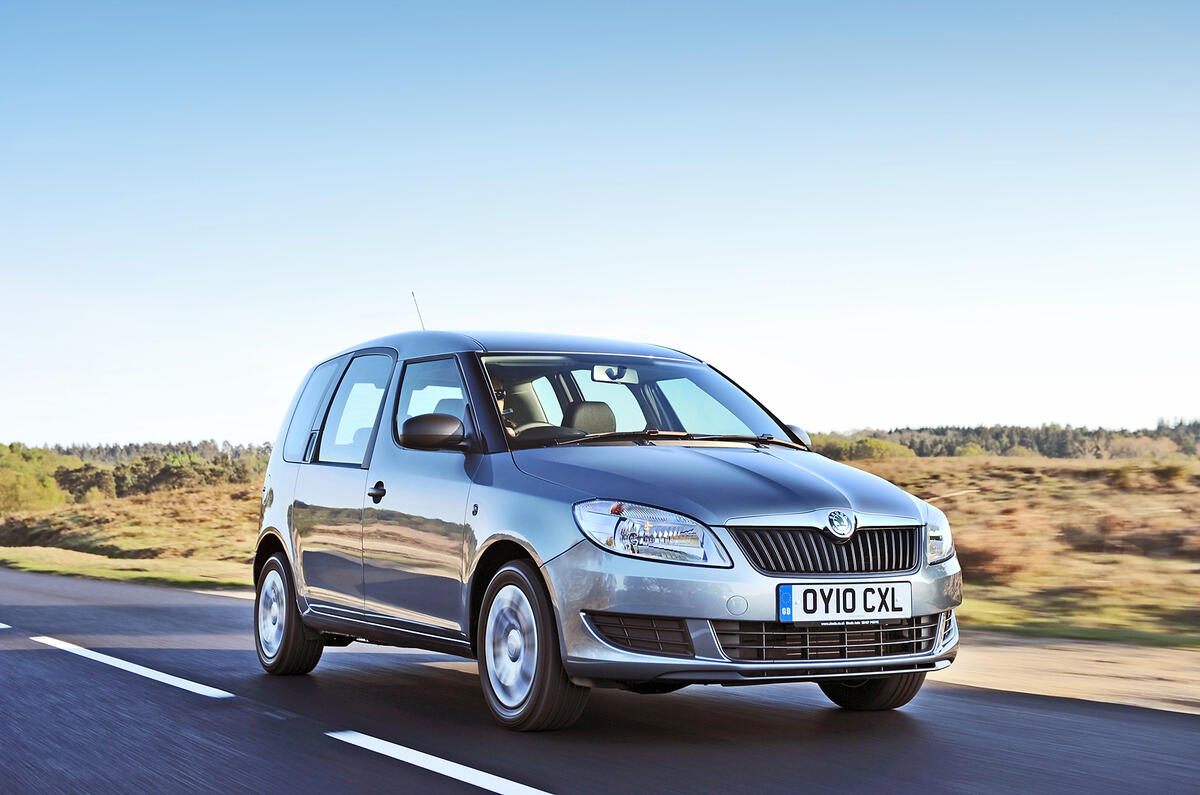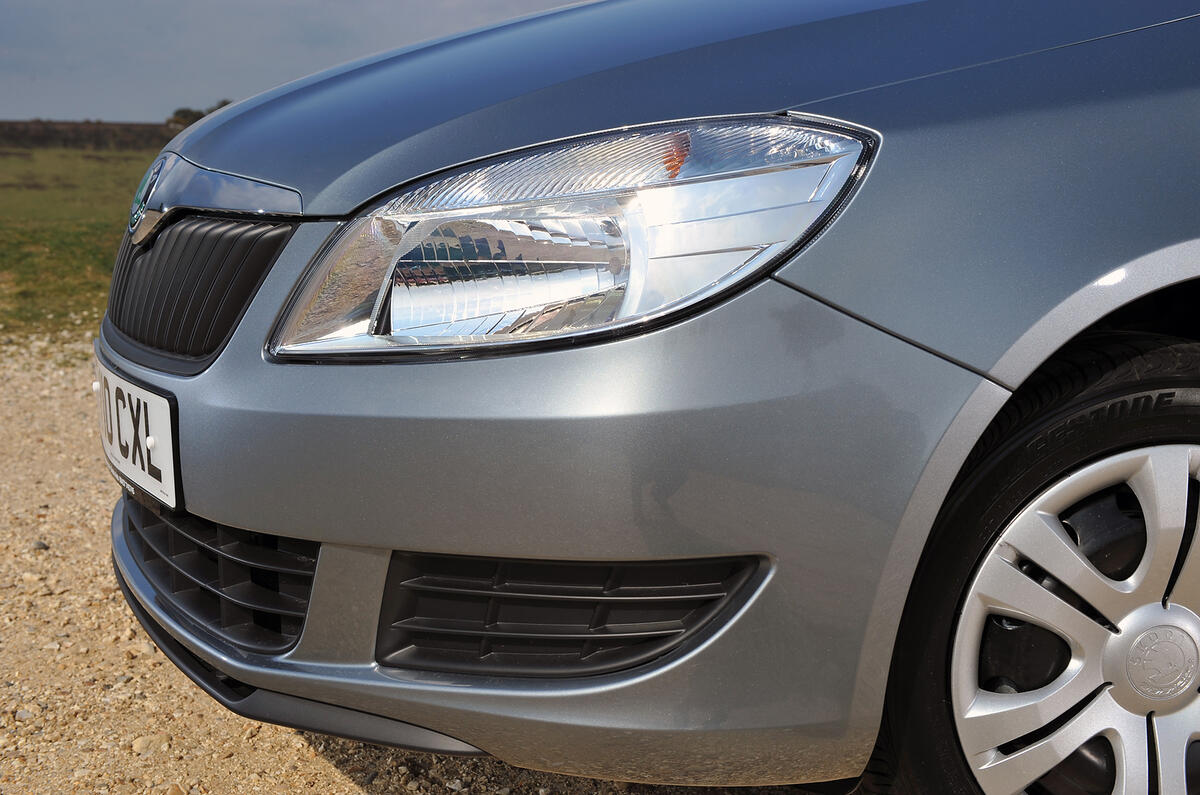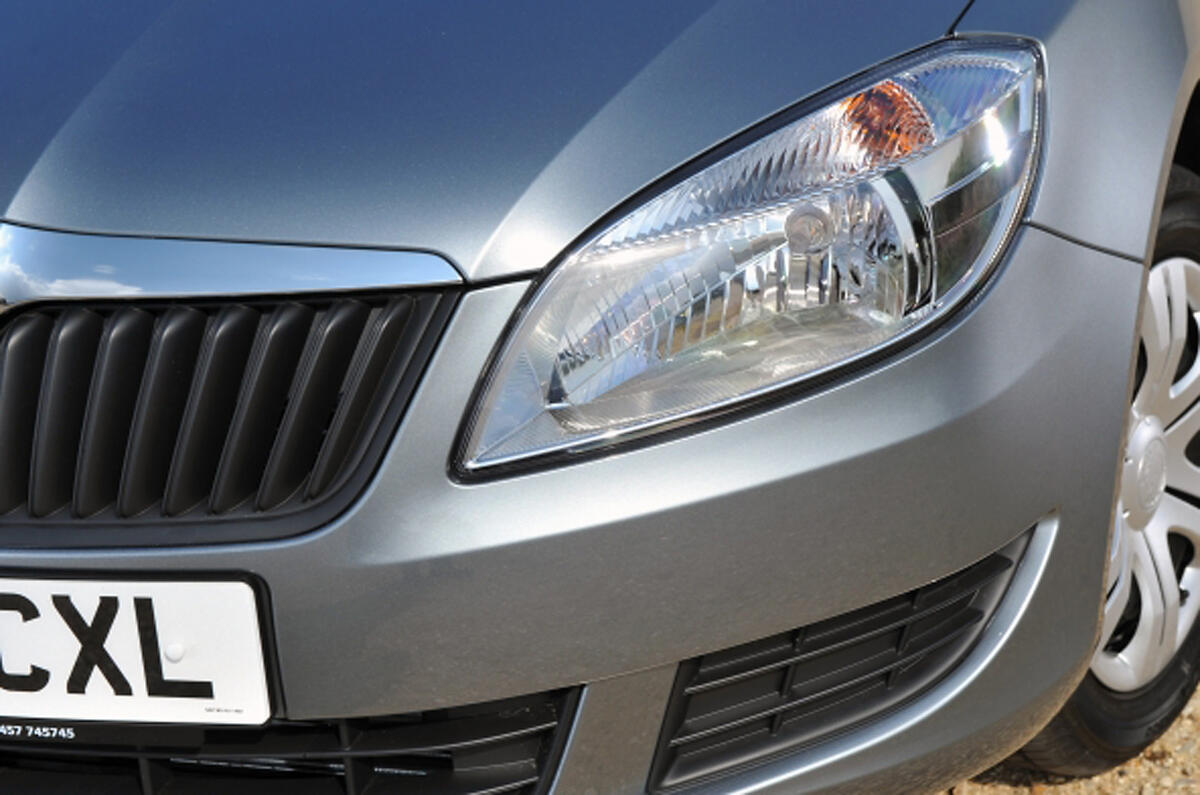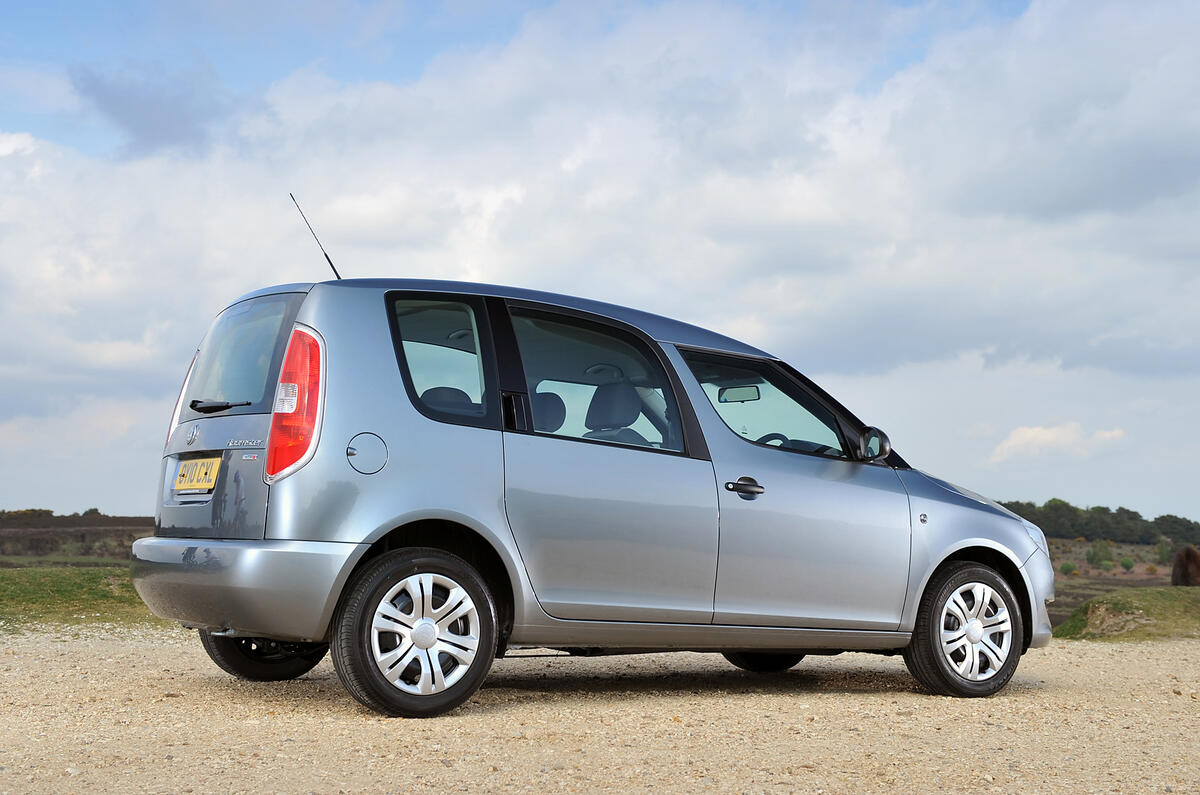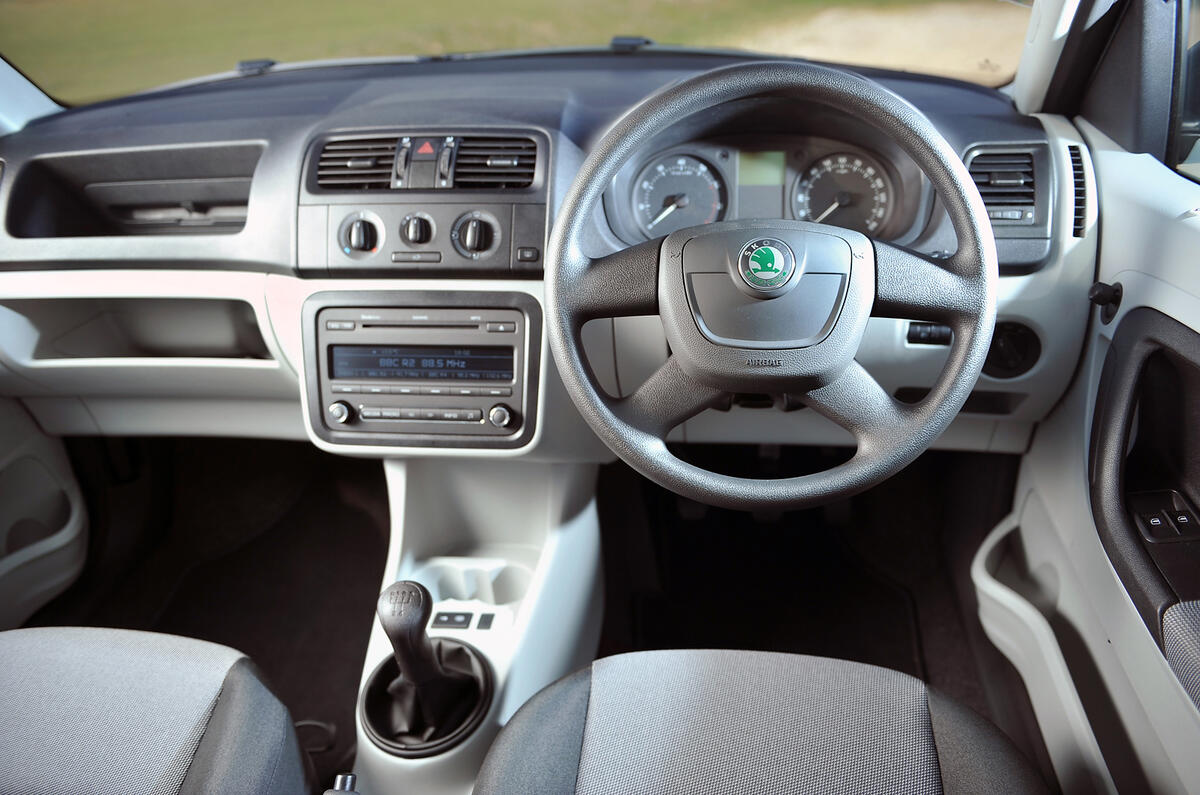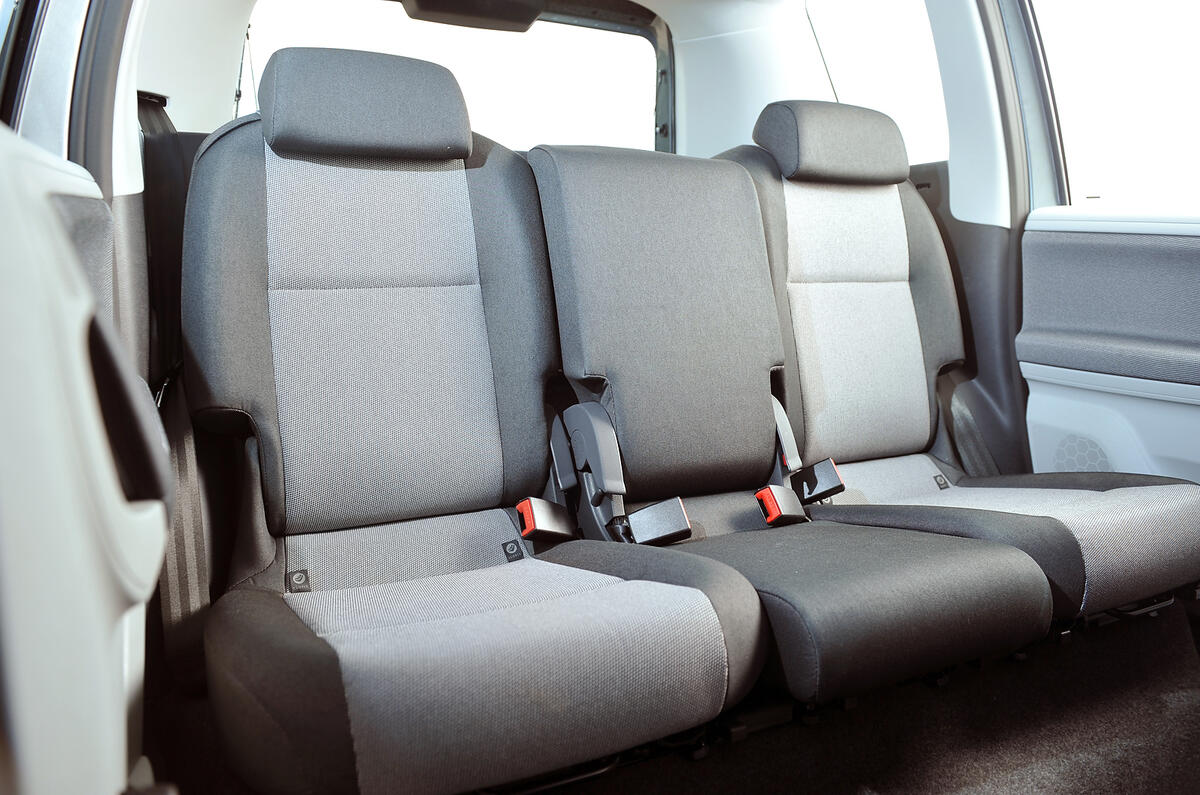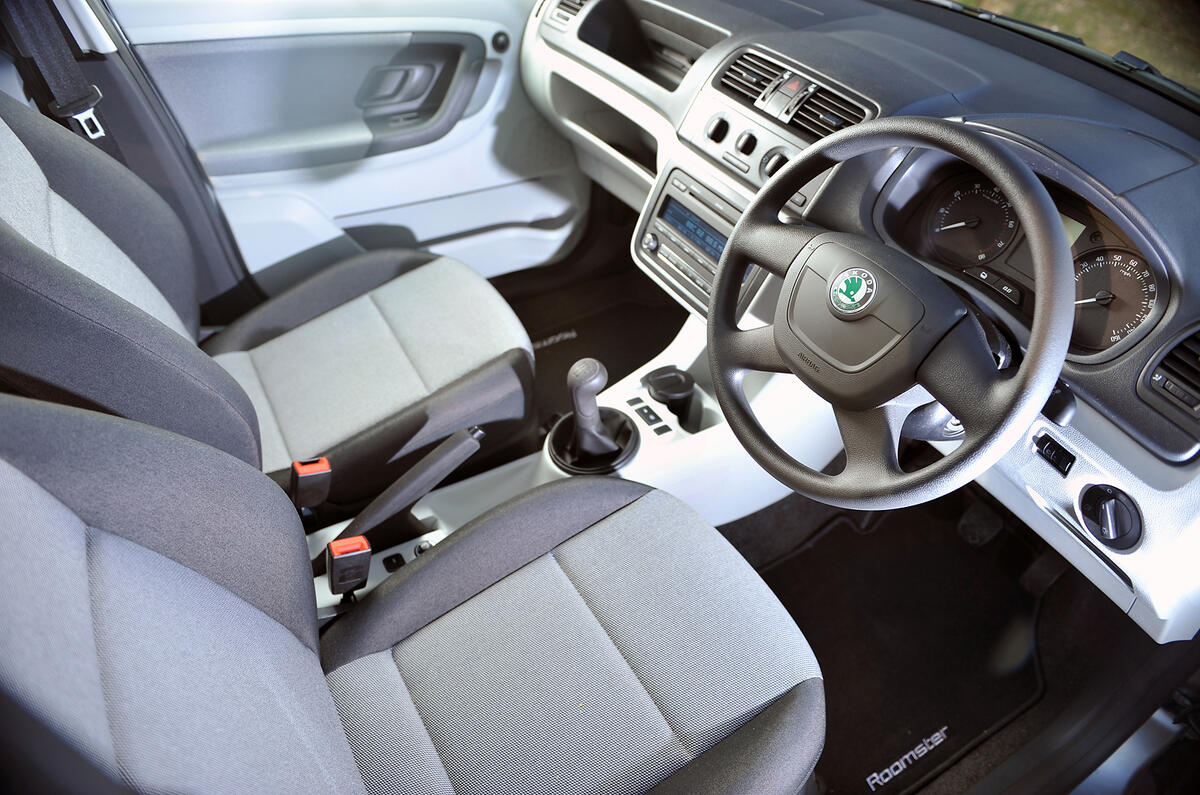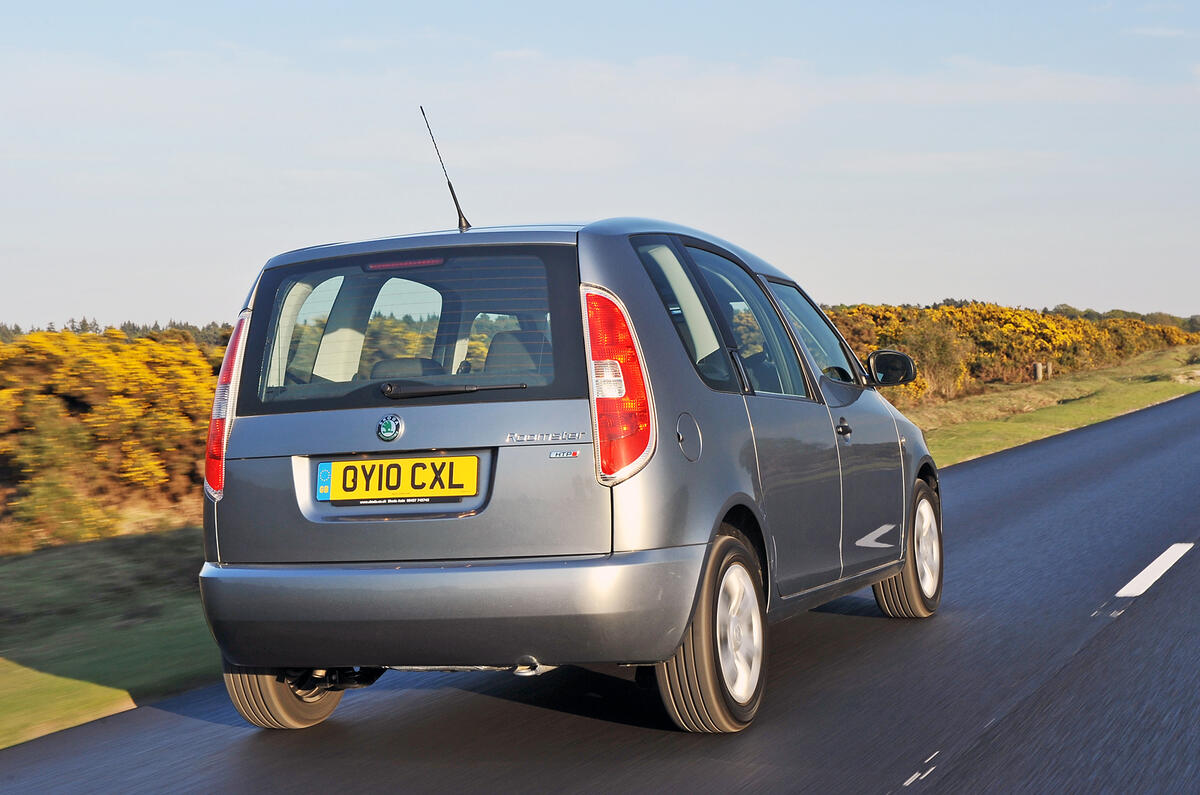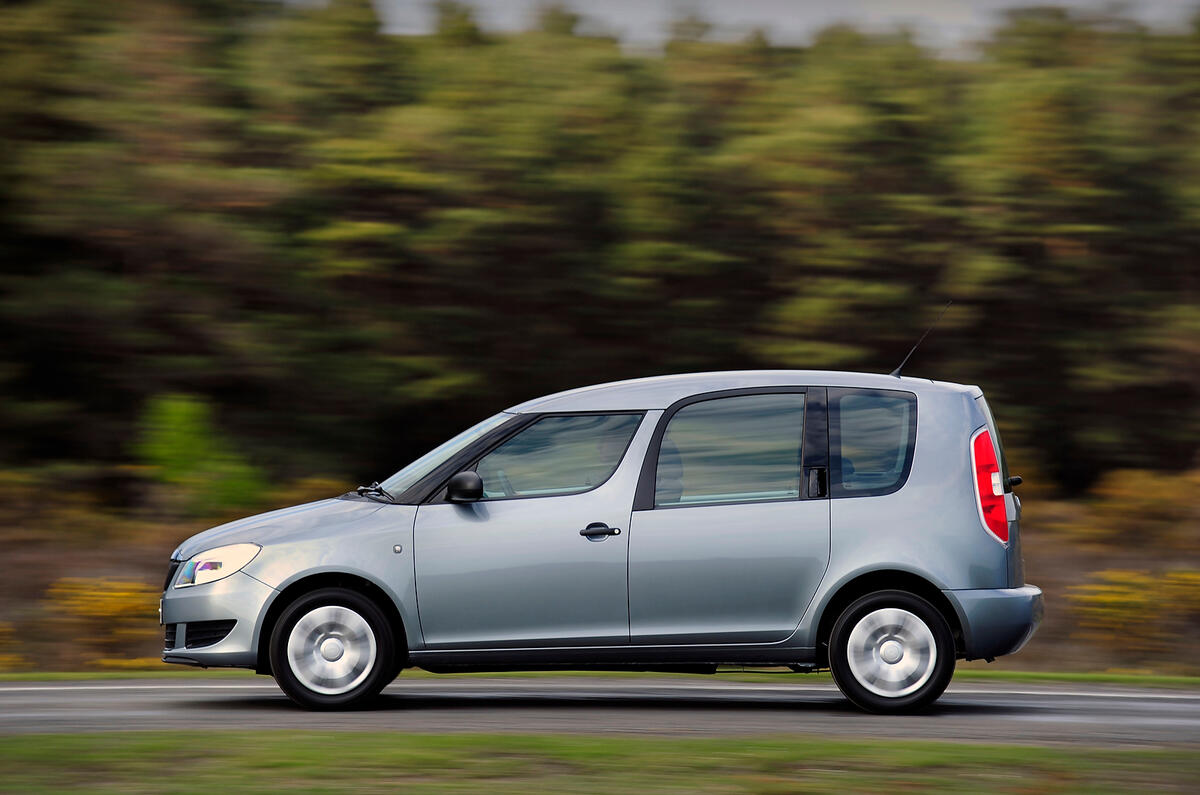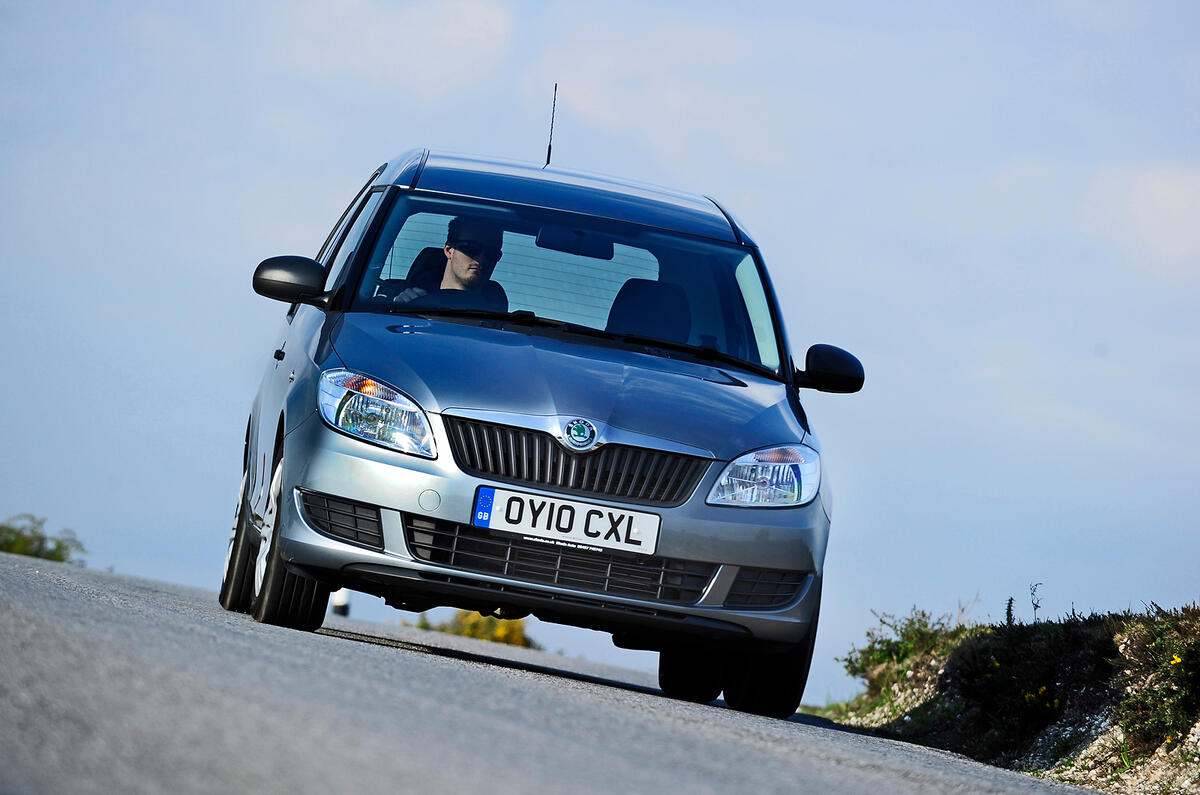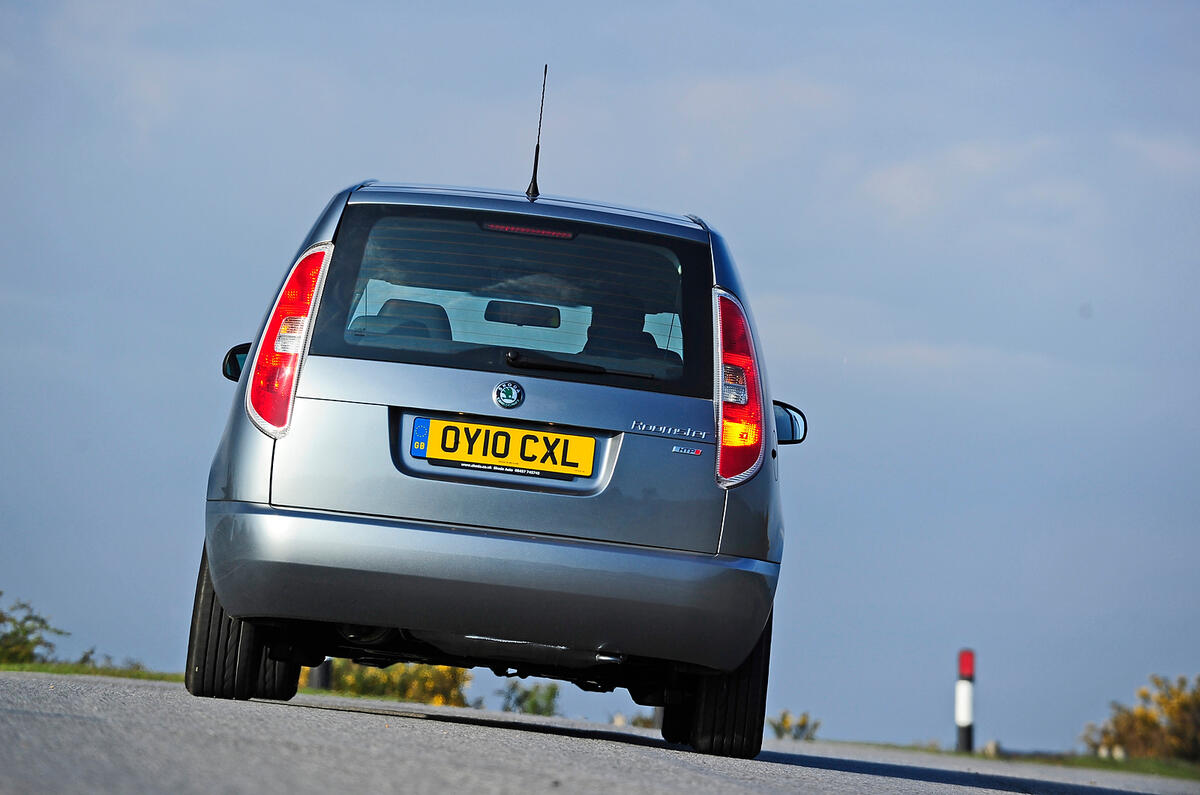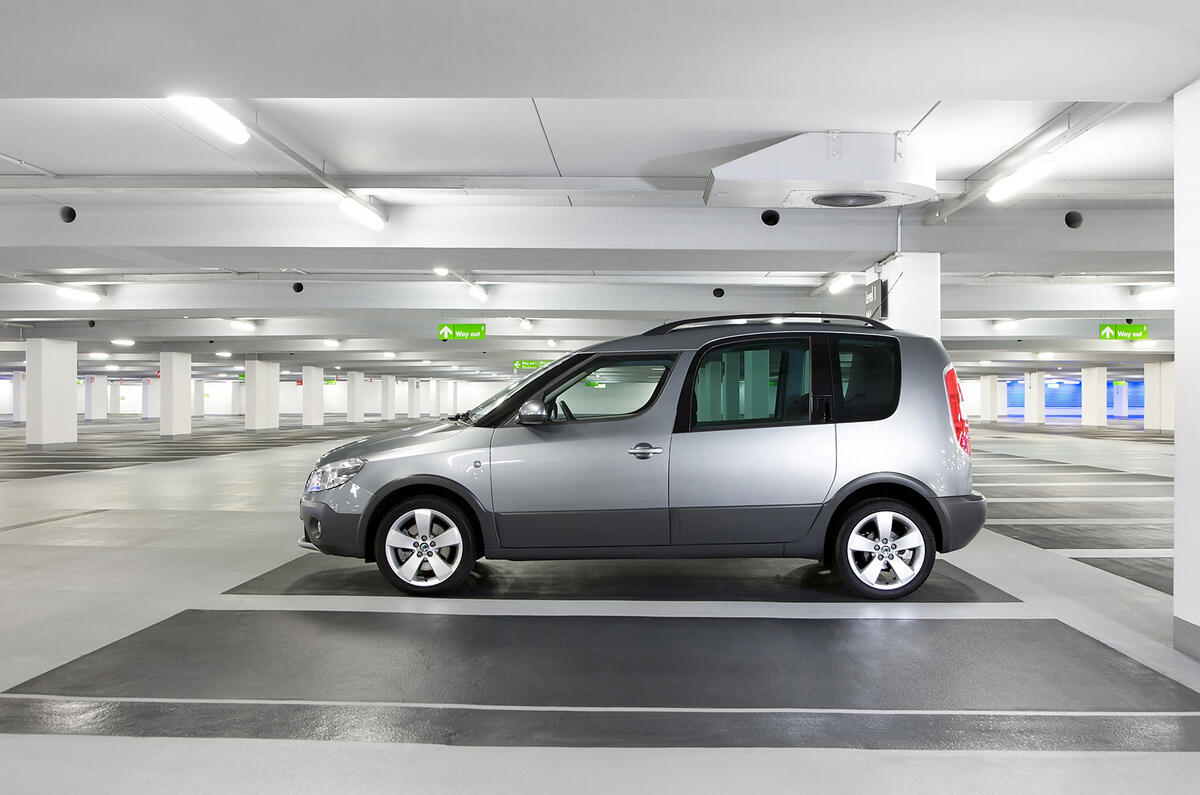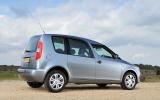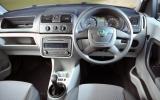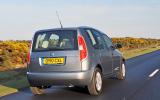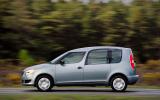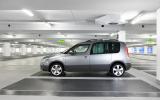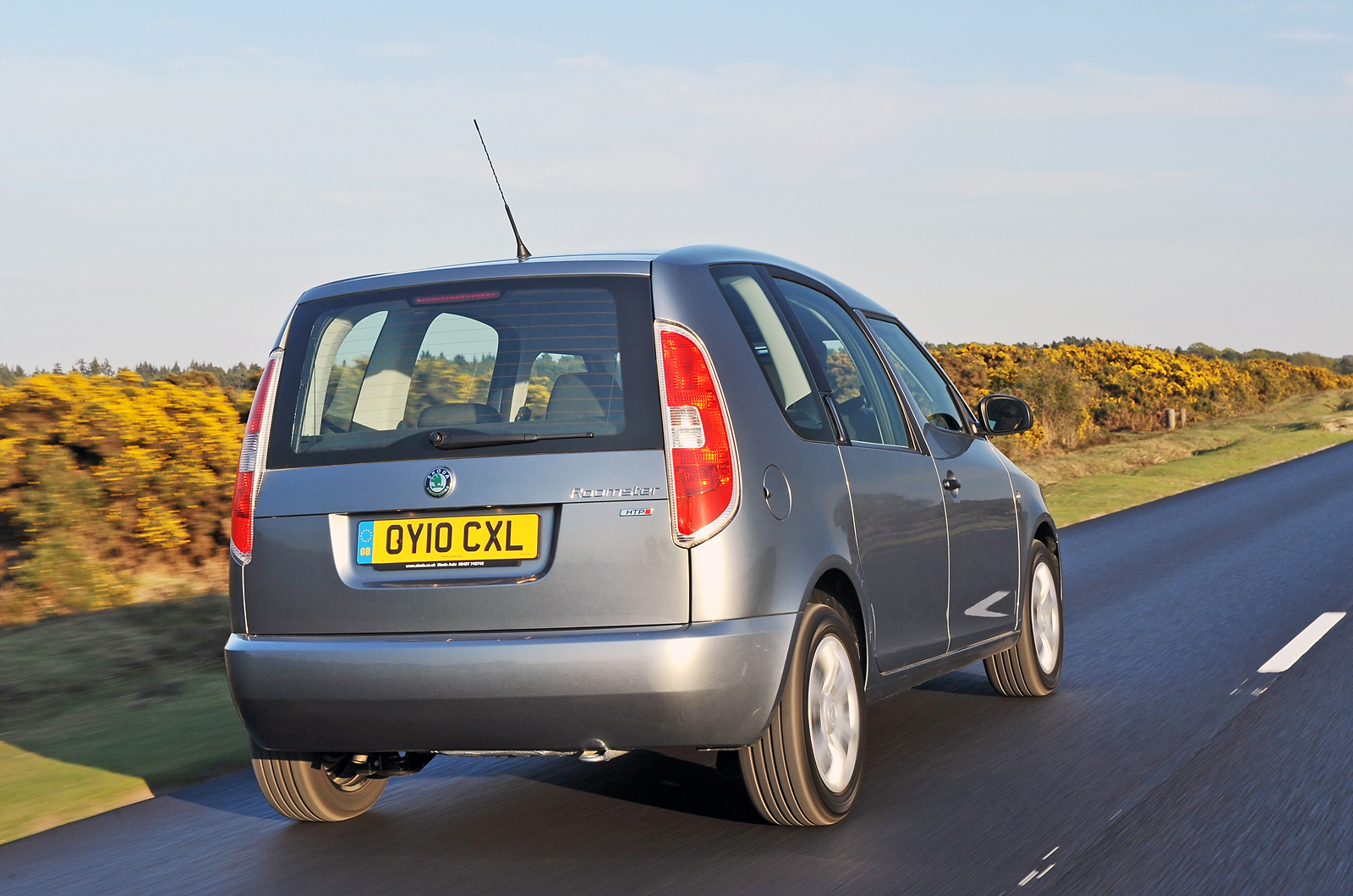The theme of originality continues inside the Roomster where Skoda’s interior design and feeling of quality approaches that of offerings from parent VW. While we experienced a few niggling issues with our two test cars – a small buzz emanating from the dash in one, and an ill-fitting glove box in the other, the fit and finish generally exceeded expectations.
There is nothing complex or fussy about the forward cabin, just thoughtfully placed, simple and stylishly designed controls. Our mid-spec Roomster 2 added metal-effect door handles and vent surrounds, a welcome contrast with the otherwise sober dash.
Although the front cabin is awash with neat storage ideas, such as the elasticated straps that run across the top of the door bins to secure maps, the real trickery is behind the driver. After you’ve found the hidden door handles and stepped through the large rear doors, it’s immediately obvious how much higher the rear passengers sit that than their companions in the front. Assuming you’re not sat behind some freakishly tall driver, you should have a clear view of the road ahead, boosting the sense of spaciousness.
Accommodation in the rear consists of two outer chairs that both slide and recline, and a more occasional fixed middle seat (although it does fold forward to act as a centre arm rest, complete with cupholders). Unsurprisingly given the roofline, headroom is capacious, though legroom for adults is merely adequate, the seats’ travel limited by rear wheel intrusion. Reclining the seats improves the situation and few will complain over moderate journeys.
If there is a comfort-related criticism, it is that shoulder room is tight, but Skoda has a solution for this as well: if you’re travelling four up, remove the middle seat and you can slide the two outer seats inwards for more shoulder room.
With seats up the load capacity is still impressive at 530 litres (just 30 litres less than an Octavia hatch). If you have bigger loads to carry, you can fold down any of the three rear seats. If you need even more room, each unit can be independently pivoted forward and held in position with a bungee cord (which conveniently can also secure items in the boot). Still not enough? Each seat unit can be removed completely to give an uninterrupted flat floor, 400mm of extra load length and a total volume of 1780 litres.
The boot itself offers two bag-hooks, a power outlet, two large side trays, hooks for a luggage net and a bin for loose items or muddy boots. While none of this is individually ground breaking, the practicality count and attention to detail are impressive.
Likewise, each seat control is slick and well placed, our only gripes being the need to slide the seats back before pivoting them forward, and the weight of the seats themselves.



